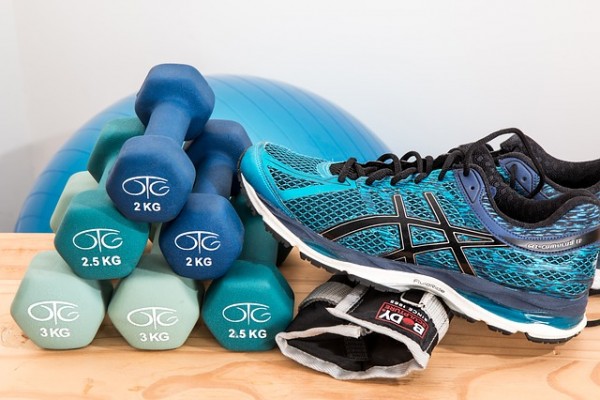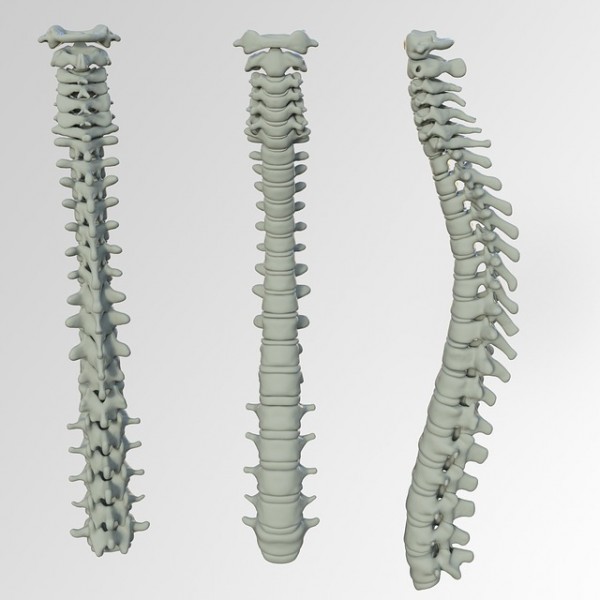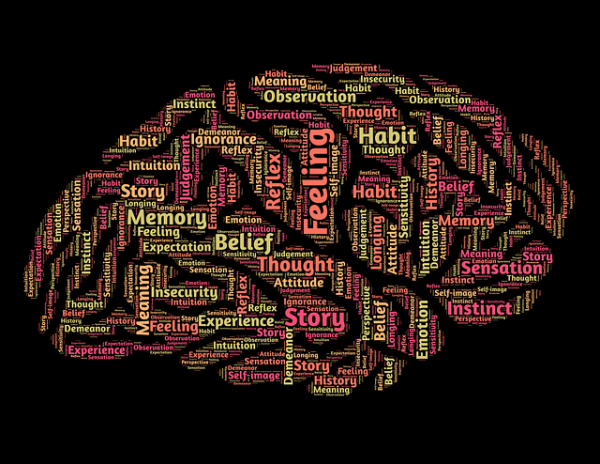Obtaining Wellness: The Most Important Healthy Choices to Pay Attention To
I read wellness articles ALL the time. Therefore, I can tell you there is a ton of different information out there on the different things you should be doing to achieve wellness. It is almost overwhelming, you can’t follow all the wellness advice out there, because literally wellness will become your life. So instead, I’ve provided categories of what I see as the most important areas of wellness. This is based on what I’ve learned from my life experience, and reading hundreds and hundreds of articles.
I believe to truly obtain wellness it is important to have the right perspective on what wellness is and what wellness isn’t. To read more on what wellness is all about, the importance, and some of the flawed health perspectives in our society, take a look at my last blog: Society’s Flawed Views on Wellness & Healthcare (which make people sick, or keeps them sick).
.jpg) As I mentioned in my previous blog, The World Health Organization says wellness is “…a state of complete physical, mental, and social well-being, and not merely the absence of disease or infirmity.”
As I mentioned in my previous blog, The World Health Organization says wellness is “…a state of complete physical, mental, and social well-being, and not merely the absence of disease or infirmity.”
So if you are the type of person who on a regular basis eats healthy, works out, drinks lots of water, but only sleeps 4-6 hours a night and has a lot of stress you are not living a wellness lifestyle. If you typically sleep 7-8 hours at night, exercise regularly, drink lots of water, control your stress, but go out to eat a lot, eat lots of junk food and preprocessed stuff (which isn’t really food), you are not living a wellness lifestyle. If you do all these healthy things for your body, but allow yourself to continuously be around toxic people who harm your thoughts and emotions, you are not obtaining wellness. If you are not working toward healthy habits physically, mentally, and socially, you are not obtaining the full aspects of a healthy life or wellness itself.
There are always things each of us need to work on. There is no ideal perfect person who can say they are achieving the absolute perfect wellness lifestyle. No one can eat healthy all the time, avoid every toxin out there, never be stressed, or always have healthy thoughts. Wellness is something that we all have to work on and continue to work on throughout our lives to ward off disease and illness, and live life to the fullest. And this should be a top priority. Although there is no perfect equation for how to obtain wellness, there are some healthy choices that should be prioritized above everything else. As long as no healthy area is neglected and ignored regularly, you will be obtaining a wellness lifestyle.
If you want to take preventative measures against illness and disease, and live life to the fullest, you should work on each of these health concepts.
1. Sleep
It is important for both short-term and long-term health to get at least 7-8 hours of sleep at night on a regular basis. Even if you think you can function on less, or get by with less by drinking caffeinated beverages, it is hurting your health. You may not notice the effects of not getting enough sleep because they may be subtle such as: a lack of concentration toward the middle of the day, a bit of anxiousness, or problems with digestion. Any number of symptoms can show up from a lack of sleep. But this is not just a short-term concern, in the long-term it is detrimental to your health, as well. A lack of sleep can weaken your immune system, wreak havoc on mental thoughts, cause weight gain, high blood pressure, risk of heart disease, and more. To read more about the importance of sleep take a look at Healthline’s article: The Effects of Sleep Deprivation on Your Body.
2. Healthy Eating
Importance of Healthy Eating
 Having an unhealthy diet does not only effect your short-term health, but also your long-term health. And not only does it have an impact on your physical well- being, it also affects your mental thoughts. View Food for your mood: How what you eat affects your mental health from Aetna. “Every time you eat or drink, you are either feeding disease or fighting it.”- Heather Morgan. Even if what you eat isn’t the direct cause of a disease, it has an impact, and what you eat is going to help fight it. We might think what we eat isn’t affecting our health, because we don’t see immediate effects. However, small things like feeling lethargic half way through the day, or struggling with a lack of concentration, often can be results of a poor diet. Then, there are the noticeable health issues like weight gain, migraines, IBS, and fatigue. Finally, there are the long-term consequences such as: Diabetes, Cancer, Dementia, Asthma, Osteoarthritis, Gallbladder disease, Coronary Heart Disease and countless other chronic illnesses.
Having an unhealthy diet does not only effect your short-term health, but also your long-term health. And not only does it have an impact on your physical well- being, it also affects your mental thoughts. View Food for your mood: How what you eat affects your mental health from Aetna. “Every time you eat or drink, you are either feeding disease or fighting it.”- Heather Morgan. Even if what you eat isn’t the direct cause of a disease, it has an impact, and what you eat is going to help fight it. We might think what we eat isn’t affecting our health, because we don’t see immediate effects. However, small things like feeling lethargic half way through the day, or struggling with a lack of concentration, often can be results of a poor diet. Then, there are the noticeable health issues like weight gain, migraines, IBS, and fatigue. Finally, there are the long-term consequences such as: Diabetes, Cancer, Dementia, Asthma, Osteoarthritis, Gallbladder disease, Coronary Heart Disease and countless other chronic illnesses.
How to Eat Healthier
Understanding how to truly eat healthy is rather complicated. We are constantly bombarded by false and deceiving information. For a while, people were deceived into believing that “fats” made them “fat.” When in fact there is a difference between healthy fats and bad fats, and the real problem has always been “sugar.” Additionally, there are many foods marketed as being good for our health, when in fact they are the exact opposite. And on top of that food has become more and more processed containing dangerous toxic chemical additives. So the answer to eating healthier is to eat more like they did in the stone-ages, when people didn’t have all the chronic illnesses we have today. This means eating less processed foods, less grain products, less dairy, and more meat, fruits, and vegetables. Also, consuming less sugar either as an added ingredient, or as a food like bread or pasta that turns into sugar in the body. Try your best to eat more of a paleo diet.
- Nutritional Supplements – It is very difficult these days to get all the vitamins and nutrients we need just from the food we eat on a regular basis. So consider nutritional supplements if you find your diet might be lacking something that is hard to obtain on a day to day basis.
3. Drink Water

Our bodies need water. Around 50-70% of our bodies weight is made up of water. A lack of water can cause fatigue, headaches, grumpiness, mood swings, stomach pain, constipation, urinary tract infections, impaired memory/concentration, dizziness, and many other physical and mental health problems. It can also produce ongoing health issues such as high or low blood pressure, inability to lose weight, cholesterol imbalance, and so on. According to Business Insider Australia, research shows that as little as 1% dehydration negatively affects your mood, attention, memory and motor coordination.
How much water should we drink?
Many health professionals recommend about eight 8-ounce glasses a day, equivalent to 2 liters. However, there are many factors that could change that number based on your body weight, level of activity, and so on. Some of your daily water intake can be from foods along with beverages like tea, but most of your water intake should be actual water. If you are someone who doesn’t enjoy drinking just plain water, you can always find flavored water, or add cucumbers or fruits to it.
4. Exercise (Being Active, Cardio, Strength Training & Stretching)
Exercise is essential for living a healthy lifestyle and warding off diseases. It doesn’t matter how high your metabolism, how much muscle you have, or how thin you are. You still need to exercise in order to live a long, healthy life. Many people immediately think of cardio when they think about exercise. But, exercise is more than cardio. If you have a job or routine during the day that involves sitting a lot, it is more important that you find ways to be active other than 30 minutes of cardio 3-4 times a week. Being active doesn’t have to be high intensity exercise, it could just be: relaxed walking, swimming, yoga, a hike, etc. The Department of Health and Human Services recommends getting at least 150 minutes of moderate aerobic activity or 75 minutes of vigorous aerobic activity a week, or a combination of moderate and vigorous activity.
 Any form of exercise is great when you are dealing with chronic pain or a chronic illness! But, if you are able to do cardio, you should aim for doing around 30 minutes of cardio 3-4 times a week. The best form of cardio is High Intensity Interval Training. You probably already know about the various benefits and importance of cardio exercise. But, did you know it also helps with your brain health and flushing out toxins? Toxins building up can lead to inflammation resulting in a chronic illness. And your brain health is super important, because you don’t want to end up with an illness like dementia.
Any form of exercise is great when you are dealing with chronic pain or a chronic illness! But, if you are able to do cardio, you should aim for doing around 30 minutes of cardio 3-4 times a week. The best form of cardio is High Intensity Interval Training. You probably already know about the various benefits and importance of cardio exercise. But, did you know it also helps with your brain health and flushing out toxins? Toxins building up can lead to inflammation resulting in a chronic illness. And your brain health is super important, because you don’t want to end up with an illness like dementia.
Strength Training
Strength training is also super important in living the wellness lifestyle. Aim for doing strength training exercises 2-3 times a week. If you don’t work to strengthen your muscles, they will decline by 25% of what you had in your mid-30’s when you reach 70. They will decline by 50% by the time you are 90. Strength training is super important in preventing injuries, promoting a healthy spine, making everyday tasks easier, preventing pain, boosting metabolism and more. To read about all the benefits, types of strength training, and tips for strength training with a chronic illness view on Hope Instilled: Strength Training for Chronic Pain.
Stretching
Stretching should be done after a workout. However, stretching is super important when you feel any type of pain in your back, legs, or other parts of your body. Additionally, if you are sitting for long periods of time, doing heavy lifting, doing housework or projects that require a lot of physical effort, it is important to find time to stretch.
As you get older, the importance of stretching greatly increases; it is easier to injure yourself, muscles tighten up easier, and flexibility declines. As you get older and muscles become stiffer more easily, stretching should become part of your daily routine. Some people enjoy stretching every morning with or without pain, and find doing yoga is the best way to start their day. Stretching is important in helping with posture, daily activities, flexibility, preventing and improving pain, preventing injuries, and more. Read more about stretching on Hope Instilled Stretching with Chronic Pain.
Learn more about the best types of exercise for chronic pain/illness, and tips on getting started here: Exercise Helps with Chronic Pain.
5. Controlling Stress
 I think we all know stress is usually not a positive thing. Lots of stress means high cortisol levels. This can cause issues with mental health, lower immune function, weight gain, increased blood pressure, shorten life span, and more. View more about the problems with stress and ways to reduce stress on Psychology Today: Why the "Stress Hormone” Is Public Enemy No. 1
I think we all know stress is usually not a positive thing. Lots of stress means high cortisol levels. This can cause issues with mental health, lower immune function, weight gain, increased blood pressure, shorten life span, and more. View more about the problems with stress and ways to reduce stress on Psychology Today: Why the "Stress Hormone” Is Public Enemy No. 1
Some of us may not realize how much time we actually spend stressed. Or have a toolbox of ways to handle stress, when it arises, to kill it before it becomes a huge problem. With so many responsibilities such as handling a job or schooling, balancing friends and family, maybe taking care of a home, life can get pretty overwhelming. If life is busy, make sure you find some time to relax. Then, evaluate whether you are carrying around some unresolved stress. In order to relieve stress, it is important to know what is causing your stress in the first place. If there is something in your life that continuously causes stress, it is time to make some changes to either your life or your mindset. There are many ways to handle stress from taking a walk, writing out the problem, meditating, taking a bath, sharing emotions with a friend, exercising, and so on.
To live a less stressful life, consider these three things:
- Do you notice when stress is starting to arrive and kill it before it takes over? Mindfulness & Meditation may help.
- Do you have a toolbox of ideas on how to eliminate stress effectively once it takes over?
- Does your life in general have too much stress? You might need to change jobs, cut back on commitments, reorganize your life, or make other adjustments.
6. Eliminating Toxins
 Toxins are a huge problem! Most people don’t realize how much toxins they are exposed to and consume on a regular basis, or how it affects their health. Toxins are one of the main reasons for chronic illnesses and diseases. Toxins are all around us! They are in the food we eat, the air we breathe, products we put on our skin, and more. Eating nutritious meals, exercising frequently, getting enough sleep, keeping stress levels low, isn’t enough if you are exposing yourself to toxins like mold in your home, breathing in chemical cleaners on a regular basis, or are exposed to second-hand smoke, fumes from a nearby power plant, or something else. According to Global Healing Center, it isn’t abnormal to be exposed to 2,100,000 toxins each and every day.
Toxins are a huge problem! Most people don’t realize how much toxins they are exposed to and consume on a regular basis, or how it affects their health. Toxins are one of the main reasons for chronic illnesses and diseases. Toxins are all around us! They are in the food we eat, the air we breathe, products we put on our skin, and more. Eating nutritious meals, exercising frequently, getting enough sleep, keeping stress levels low, isn’t enough if you are exposing yourself to toxins like mold in your home, breathing in chemical cleaners on a regular basis, or are exposed to second-hand smoke, fumes from a nearby power plant, or something else. According to Global Healing Center, it isn’t abnormal to be exposed to 2,100,000 toxins each and every day.
Although it is not possible to avoid all toxins, there are definitely steps that can be taken to reduce your toxic exposure. Take a look at my past two blogs: How to Lessen Your Exposure to Toxins (Part 1: Products & Environment) and How to Lessen Your Exposure to Toxins (Part 2: Foods). Think of reducing your toxic exposure as an ongoing life-long goal. I have made significant, huge changes to my toxin exposures over the last few years, but I still continue to work on things every year to reduce the toxins in my life.
7. Posture
Importance of Posture
Poor posture can lead to a number of health issues, but can also lead to ongoing pain that hinders regular, everyday tasks. With proper posture the body also functions more efficiently. Proper posture should be considered when standing, walking, sitting, and even laying down (if you have a pillow that it too puffy or too flat it can strain your neck and cause misalignment). Bad posture can cause problems with the nervous system, and how well our bodies function is based on the integrity of our nervous system. The nervous system is one system in our bodies that directly affects every other system.
 Fixing It Before It Gets Worse
Fixing It Before It Gets Worse
When you experience back or neck pain that isn’t severe, but continues to be present for months, ignoring it hoping it will go away is the wrong course of action. Often it will only get worse over time, lead to a severe pain experience, and take longer to treat the longer it goes untreated. Almost 80% of people experience some form of back pain throughout their lives. So it is not abnormal to experience back or neck pain, but that’s reason enough to take proper care of your spine.
How to Maintain a Healthy Spine
In order to maintain a healthy spine, it is important to consider your posture at all times, evaluate your work station, wear proper shoes for long distance walking, pay attention to text neck (neck pain from looking down at your phone), do regular stretches daily, consider strengthening exercises to improve posture and maintain a healthy spine, and choose a quality mattress and pillow. Additionally, if you experience even slight ongoing neck or back pain look into visiting a chiropractor, before it turns into something worse.
8. Obtaining Healthier Thoughts
There is a correlation between your health and your thoughts and feelings. Every feeling you have affects some part of your body. Take a look at Mercola’s article: How Negative Emotions Can Affect Your Health.
Mental health is something I think we all can always continue to improve upon throughout our lives. Different people struggle with different aspects of mental health. Some of these different struggles could be constant negative thoughts, or jealousy issues, obsessive worrying, anxiety, negative self-talk, obsessing about the past or future, being short-fused, or suppressing emotions. Changing one’s regular thoughts and emotions can be quite challenging, it is often not something fixed within a day or a couple weeks.
Solutions
All mental health problems require different solutions. However, there are books and articles to help with every mental health problem imaginable. Many contain tasks to help improve health. Some just help with new viewpoints to consider in training your brain to think differently, or handle emotions differently. I believe there is always a book out there for all of us to read to improve our thoughts and view-points on the world, even if they are not directly affecting our health.

Possible Mental Health Improvements:
- Improving negative thinking patterns
- Focusing more on being present in the moment (not living in the past or in the future) with: Mindfulness & Meditation
- Gratefulness
- Ditch the negative self-talk: stop being so hard on yourself
- Stop regularly comparing yourself to others
9. Relationships
We are meant to be social creatures and have positive, healthy relationships with other people. However, how much interaction we need with other people is not as black and white. Some people may struggle with not having enough interactions with other people, and some may struggle with too many interactions.
Introvert vs. Extrovert Personalities
It is important to understand whether you are an introvert or an extrovert. It also helps that the people around you know, as well. An introvert loses energy from being around people (certain people can steal more energy than others), and extroverts gain energy from being around other people. There are actually a lot more traits that can determine whether you are an introvert or extrovert, if you are unsure, but that is the main explanation. Introverts typically enjoy more time alone, while extroverts love being social and being surrounded by other people. Sadly, we live in a more extrovert world in America, and introverts needs often go ignored. If this is something you struggle with I would recommend reading Susan Cain’s book Quiet: The Power of Introverts in a World That Can't Stop Talking.
Both introverts and extroverts are equally important to society as a whole. Paying attention to your needs as an introvert or an extrovert is super important. It can be hard sometimes for an extrovert to understand the needs of an introvert and vice versa. But always remember your needs are just as important as theirs.

Handling Toxic Relationships
There are a lot of ways to define healthy relationships vs. unhealthy relationships. However, you can typically tell if you have a toxic relationship with someone by the way they make you feel: Do you dread seeing them? Do they make you feel bad about yourself? Do you feel they don’t respect your needs? Do you feel like they are ungrateful for the things you do? I run across articles every single week that say basically the same thing “If you have a toxic relationship with someone whether it’s a family member, a friend, or significant other, cut them out of your life or limit your exposure to them.” It is okay to put yourself first. Why should their needs be prioritized above yours, when they are hurting your health? Toxic relationships can cause added stress, sleep problems, ongoing negative thoughts and emotions, and could lead to an ongoing health issue. Take control over your health by eliminating toxic relationships and gaining more healthy ones. You can also view my prior blog post Maintaining Healthy Relationships While Chronically Sick.
Another really important wellness concept is Time in Nature. It is super beneficial to get Vitamin D from the sun, and to breathe the fresh air, or even feel grass or sand beneath your toes with the concept of grounding. This is great for both your mental and physical health.
There are many other things that may help you to live a healthier life. Obvious things like good hygiene, visiting the doctor yearly for a checkup, visiting a dentist twice a year, are also beneficial health care practices. Then, there are also wellness concepts that help with mental health like: taking breaks from technology, reducing clutter in your life, focusing more on experiences vs. possessions, and so on.
There is a definite satisfaction that comes with living a wellness lifestyle.
Embrace it!
<<-- Back to Stories of Hope Email to a friend
Login to Add Your Comment